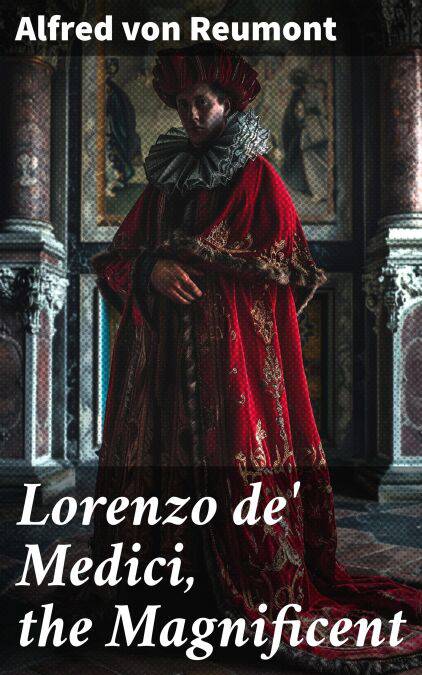
- Afhalen na 1 uur in een winkel met voorraad
- Gratis thuislevering in België vanaf € 30
- Ruim aanbod met 7 miljoen producten
- Afhalen na 1 uur in een winkel met voorraad
- Gratis thuislevering in België vanaf € 30
- Ruim aanbod met 7 miljoen producten
Zoeken
Lorenzo de' Medici, the Magnificent E-BOOK
The Life and Legacy of the Infamous Italian Ruler (Vol. 1&2)
Alfred von Reumont
E-book | Engels
€ 1,99
+ 1 punten
Omschrijving
In "Lorenzo de' Medici, the Magnificent," Alfred von Reumont delves into the life of one of the most influential figures of the Italian Renaissance. The book intricately weaves historical narrative with biographical detail, showcasing Lorenzo's multifaceted character as a statesman, patron of the arts, and cultural innovator. Reumont's literary style is both elegant and accessible, emphasizing Lorenzo's enduring impact on Florence and the broader European culture of his time. Within its pages, readers will find vivid portrayals of prominent artists and thinkers who flourished under Lorenzo's patronage, reflecting the richness of the era's artistic and intellectual advancements. Alfred von Reumont, a prominent historian and scholar of Renaissance Italy, was deeply influenced by his fascination with art and culture. His expertise in the period not only informs the depth of his analysis but also highlights the complexities of Lorenzo's rule amid political intrigue and social strife. Reumont's extensive research and firsthand experience with Florentine culture lend his work a unique authenticity, immersing readers into the life and times of Lorenzo de' Medici. This book is an essential read for those enamored with the Renaissance, offering a compelling account of a pivotal figure whose legacy shaped Western art and politics. Reumont's scholarly yet engaging approach makes this biography both enlightening for historians and captivating for casual readers seeking to understand the intricate tapestry of Renaissance Florence.
Specificaties
Betrokkenen
- Auteur(s):
- Uitgeverij:
Inhoud
- Aantal bladzijden:
- 910
- Taal:
- Engels
Eigenschappen
- Productcode (EAN):
- 8596547782117
- Verschijningsdatum:
- 17/12/2023
- Uitvoering:
- E-book
- Beveiligd met:
- Digital watermarking
- Formaat:
- ePub

Alleen bij Standaard Boekhandel
+ 1 punten op je klantenkaart van Standaard Boekhandel
Beoordelingen
We publiceren alleen reviews die voldoen aan de voorwaarden voor reviews. Bekijk onze voorwaarden voor reviews.








